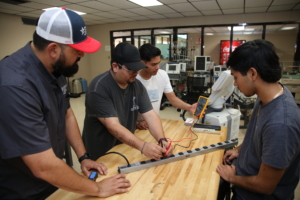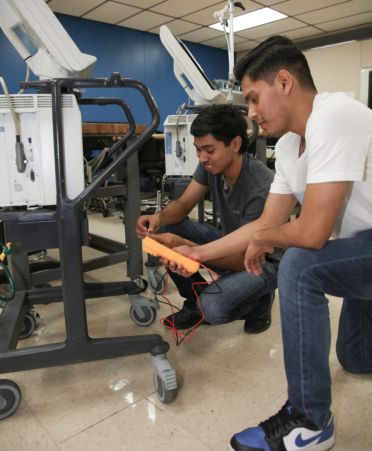(HARLINGEN, Texas) – Students in Texas State Technical College’s Biomedical Equipment Technology program are trained to handle real-world emergencies such as when a power outage strikes a hospital and critical medical equipment stops working.
Armando Ortiz is an instructor in the program on TSTC’s Harlingen campus. Recently, he talked about how the students prepare to respond to these high-stakes scenarios.
How are students prepared to handle sudden equipment failure during a power outage at a medical facility?
Students are trained through simulated scenarios and hands-on labs to identify critical equipment and prioritize systems connected to emergency power. They learn to quickly assess backup power options, such as battery life and generator switchover, and procedures to ensure patient safety.

What skills and troubleshooting methods do students develop to respond effectively in high-pressure situations?
Students are taught to remain calm and systematically check power sources, cables, fuses and internal circuits. They practice using diagnostic tools and decision trees to isolate the problem quickly while considering the clinical context and urgency of the device.
How does the program replicate real-world emergencies to prepare students for their future careers?
Programs often use mock drills or controlled lab simulations where power is deliberately cut. Students must respond as if they are in a live hospital setting. These simulations help reinforce real-time decision-making, communication with medical staff and prioritization of life-critical systems. It helps them to explain technical issues in simple terms and coordinate actions under pressure.
TSTC offers an Associate of Applied Science degree in Biomedical Equipment Technology at its Harlingen and Waco campuses, as well as an Associate of Applied Science degree in Medical Imaging Systems Technology Specialization at the Waco campus.
Registration for TSTC’s fall semester is underway. For more information, go to tstc.edu.
